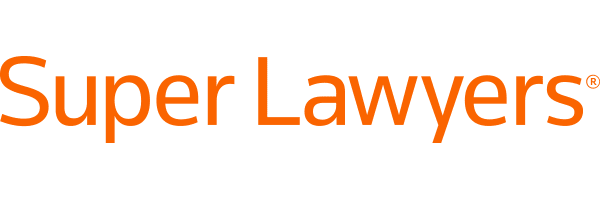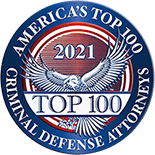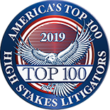Fordham Corporate Law Institute
26th Annual Conference on
International Antitrust Law & Policy
TRANSPARENCY IN ENFORCEMENT MAXIMIZES
COOPERATION FROM ANTITRUST OFFENDERS
By:
GARY R. SPRATLING
Deputy Assistant Attorney General
Antitrust Division
U.S. Department of Justice
Presented at
Fordham University School of Law
New York, New York
October 15, 1999
TRANSPARENCY IN ENFORCEMENT MAXIMIZES
COOPERATION FROM ANTITRUST OFFENDERS
- An Effective Anti-Cartel Enforcement Program Depends On Cooperation From Offenders
Over the last several years, the Division has had unprecedented success in terms of cracking international cartels, securing the conviction of the major conspirators, and obtaining record-breaking fines. A critical component to this success has been our ability to obtain the cooperation of some companies and individuals against their fellow cartel members. This cooperation from offenders, in turn, has been dependent upon our readiness to provide transparency throughout our anti-cartel enforcement program. Accordingly, our anti-cartel enforcement program is based on the following principles:
- A robust, effective international anti-cartel enforcement program depends on cooperation from at least some of those who have engaged in the cartel activity.
- Prospective cooperating parties come forward in direct proportion to the predictability and certainty of their treatment following cooperation.
- Therefore, prospective cooperating parties need to know (1) the rules, (2) how prosecutorial discretion will be exercised in applying the rules, and (3) that they will be treated fairly and equitably.
- An anti-cartel enforcement program maximizes the incentives for cooperation from cartel members if it has transparency in the elements of its enforcement program discussed in Part II, and it ensures proportional and equitable treatment of offenders as discussed in Part III.
- Maximizing The Incentives For Cooperation From Antitrust Offenders:
Transparency Is The Key
If transparency is to lead to predictability, the threshold consideration for prospective cooperating parties, then transparency must include not only explicitly stated standards and policies but also clear explanations of prosecutorial discretion in applying those standards and policies.
- Transparent Standards For Opening Investigations
- The Antitrust Division Manual explains the criteria that will be considered in deciding whether to open a criminal or civil investigation.
- In general, current Division policy is to proceed by criminal investigation and prosecution in cases involving hard-core, per se unlawful agreements such as price fixing, bid rigging and horizontal market allocation.
- The Antitrust Division Manual provides examples of a number of situations where, although the conduct may appear to be a hard-core, per se violation of the law, criminal investigations or prosecutions may not be considered appropriate. These situations may include cases in which: (1) there is confusion in the law; (2) there are truly novel issues of law or fact presented; (3) confusion reasonably may have been caused by past prosecutorial decisions; or (4) there is clear evidence that the subjects of the investigation were not aware of, or did not appreciate, the consequences of their action. See Antitrust Division Manual at page III-16.
- In a matter where the suspected conduct appears to meet the Division's standard for a criminal proceeding, the decision whether to open an investigation will depend on three questions:
- The first of these is whether the allegations or suspicions of a criminal violation are sufficiently credible or plausible to call for a criminal investigation. This is a matter of prosecutorial discretion and is based on the experience of the approving officials; there is no legal standard.
- The second question is whether the matter is "significant." Determining which matters are "significant" is a flexible, matter-by-matter analysis that involves consideration of a number of factors, including: volume of commerce affected; geographic area impacted (including whether the matter is international); the potential for expansion of the investigation or prosecution from a particular geographic area and industry to an investigation or prosecution in other areas or industries; the deterrent impact and visibility of the investigation and/or prosecution; the degree of culpability of conspirators (e.g., the duration of the conspiracy, the amount of overcharge, any acts of coercion or discipline of cheaters, etc.); and whether the scheme involved a fraud on the federal government. Because the Division's mission requires it to seek redress for any criminal antitrust conspiracy that victimizes the federal government and, therefore, injures American taxpayers, this last factor can potentially trump all of the others.
- The third question -- what resources will be required to investigate and prosecute the matter -- is asked only for matters that are assessed as having lesser significance; the Division is committed to prosecuting all matters of major significance.
See Antitrust Division Manual at page III-3.
- Transparent Standards For Deciding Whether To File Criminal Charges
- The Department of Justice's stated policy for commencing or recommending Federal prosecution is found in the Department of Justice's Principles of Federal Prosecution. The Principles state that the attorney for the government should commence or recommend Federal prosecution if he/she believes that the person's conduct constitutes a Federal offense and that the admissible evidence will probably be sufficient to obtain and sustain a conviction, unless, in his/her judgment, prosecution should be declined because (1) no substantial Federal interest would be served by the prosecution; (2) the person is subject to effective prosecution in another jurisdiction; or (3) there exists an adequate non-criminal alternative to prosecution. See Principles of Federal Prosecution, U.S. Attorneys' Manual at 9-27.220.
- Practically, the Principles require that, in order to file criminal charges, the Division must believe it has a better than 50/50 likelihood of obtaining a conviction by a jury under the beyond-a-reasonable-doubt standard (the standard of proof in the United States for all criminal cases).
- Transparent Prosecutorial Priorities
- In 1995, the Division announced that it was reallocating its resources in order to make the investigation and prosecution of international cartels affecting American businesses and consumers one of the highest -- if not the highest -- priorities of the Antitrust Division, and has reconfirmed that priority in speech after speech.
- See "The Clinton Administration: Trends In Criminal Antitrust Enforcement," remarks by Anne K. Bingaman, then Assistant Attorney General, Antitrust Division, before the Corporate Counsel Institute (November 30, 1995).
- See "Criminal Antitrust Enforcement Against International Cartels," speech by Gary R. Spratling, Deputy Assistant Attorney General, Antitrust Division, before ABA Advanced Criminal Antitrust Workshop (February 21, 1997).
- See "Anticipating The Millennium: International Antitrust Enforcement At The End Of The Twentieth Century," remarks by Joel I. Klein, Assistant Attorney General, Antitrust Division, before the Fordham Corporate Law Institute (October 16, 1997).
- See "Are The Recent Titanic Fines In Antitrust Cases Just The Tip Of The Iceberg?," speech by Gary R. Spratling, Deputy Assistant Attorney General, Antitrust Division, before ABA National Institute On White Collar Crime (March 6, 1998).
- See "International Antitrust Enforcement," statement by Joel I. Klein, Assistant Attorney General, Antitrust Division, before the Subcommittee on Antitrust, Business Rights, and Competition Committee on the Judiciary, United States Senate (October 2, 1998).
- See "Negotiating The Waters Of International Cartel Prosecutions," speech by Gary R. Spratling, Deputy Assistant Attorney General, Antitrust Division, before ABA National Institute On White Collar Crime (March 4, 1999).
- Transparent Leniency Policy
- In August 1993, the Division revised and expanded its Corporate Leniency Policy to increase the opportunities and raise the incentives for companies to report criminal activity and cooperate with the Division. Leniency applications have increased more than twenty-fold since the new policy was announced, and the Leniency program is, by far, the most effective generator of large, international cartel cases. In the last two years, cooperation from amnesty applicants have resulted in dozens of convictions and over $1 billion in fines.
- See Antitrust Division Corporate Leniency Policy (August 1993).
- See model letter for use in granting leniency to corporations pursuant to the Corporate Leniency Policy.
- In August 1994, the Division instituted an Individual Leniency Policy to encourage individuals to come forward with information regarding criminal antitrust violations. The Individual Leniency Policy applies to all individuals who approach the Division on their own behalf, not as part of a corporate proffer or confession, to seek leniency for reporting illegal antitrust activity of which the Division has not previously been made aware.
- See Antitrust Division Individual Leniency Policy (August 1994).
- See model letter for use in granting leniency to individuals pursuant to the Individual Leniency Policy.
- The Division has published a number of papers in order to clarify the Division's application of its Corporate Leniency Policy.
- See "The Corporate Leniency Policy: Answers To Recurring Questions," speech by Gary R. Spratling, Deputy Assistant Attorney General, Antitrust Division, before ABA Antitrust Section 1998 Spring Meeting (April 1, 1998).
- See "Making Companies An Offer They Shouldn't Refuse," speech by Gary R. Spratling, Deputy Assistant Attorney General, Antitrust Division, before Bar Association of the District of Columbia's 35 th Annual Symposium on Associations & Antitrust (February 16, 1999).
- Transparent Policy On Plea Agreements
- The explosion of international cartel prosecutions has been greatly assisted by the Division's ability to secure the cooperation of foreign companies and witnesses through plea agreements. Such plea agreements generate a number of complex policy issues that are not raised in domestic cases. The Division published a paper addressing these recurring issues. For each issue the paper provides the Division's policy and rationale, and, where appropriate, sample model plea agreement language, case history, and practical considerations relating to the issue.
- See "Negotiating The Waters Of International Cartel Prosecutions," speech by Gary R. Spratling, Deputy Assistant Attorney General, Antitrust Division, before ABA National Institute On White Collar Crime (March 4, 1999).
- In March 1996, the Division entered into a Memorandum Of Understanding ("MOU") with the Department of Justice's Immigration and Naturalization Service ("INS") which establishes a protocol whereby the Division will advise cooperating aliens of their ultimate immigration status before they enter into a plea agreement. Prior to the MOU, the Division was unable to guarantee that a criminal conviction would not result in an alien's deportation and permanent exclusion from the United States. However, the MOU assures that cooperating aliens can receive written assurances in plea agreements that their convictions will not be used by the INS as a basis to deport or exclude them from the United States.
- See Memorandum of Understanding Between Antitrust Division and the INS dated March 15, 1996.
- See explanation of procedures for obtaining immigration relief in "Criminal Antitrust Enforcement Against International Cartels," speech by Gary R. Spratling, Deputy Assistant Attorney General, Antitrust Division, before ABA Advanced Criminal Antitrust Workshop (February 21, 1997).
- See model plea agreement language for providing immigration relief in "Negotiating The Waters Of International Cartel Prosecutions," speech by Gary R. Spratling, Deputy Assistant Attorney General, Antitrust Division, before ABA National Institute On White Collar Crime (March 4, 1999).
- Transparent Policy On Sentencing Guidelines
- The sentencing of organizations involves the calculation of fine ranges pursuant to a specific and detailed formula set forth in the United States Sentencing Guidelines. The maximum fine imposed under the Guidelines is capped by the Sherman Antitrust Act, 15 U.S.C. § 1, or the "double the gain or double the loss" provision of 18 U.S.C. § 3571(d), whichever is higher.
- See United States Sentencing Guidelines §2R1.1 and Chapter 8.
- The Division has provided guidance as to how the Sentencing Guidelines are applied to antitrust and related offenses, how mitigating and aggravating factors are weighed by the Division in calculating appropriate fines under the Guidelines, and how the statutory maximums affect Guidelines fines.
- See "Corporate Crime In America: Strengthening The 'Good Citizen' Corporation - The Experiences And Views Of The Antitrust Division," speech by Gary R. Spratling, Deputy Assistant Attorney General, Antitrust Division, before National Symposium Sponsored By the U.S. Sentencing Commission (September 8, 1995).
- See "The Trend Towards Higher Corporate Fines: It's A Whole New Ball Game," speech by Gary R. Spratling, Deputy Assistant Attorney General, Antitrust Division, before ABA National Institute On White Collar Crime (March 7, 1997).
- See "The Legal and Sentencing Guidelines Consequences of Destroying Foreign-Based Documents," ABA Section of Antitrust Law Criminal Practice and Procedure Committee Newsletter, March 1998 at 4-5.
- The Division often publishes the actual fine calculation work sheets, submitted to the federal court at the time of sentencing, which breaks down the fine calculation, including any mitigating or aggravating factors that were taken into consideration. For example, the Division has made available the fine calculation work sheets for F. Hoffman-La Roche, BASF AG, SGL Carbon AG, UCAR International, and Archer Daniels Midland - the five corporate defendants with the highest criminal antitrust fines.
- See fine calculation worksheets, attachments to "Status Report: The New Era Of Criminal Antitrust Enforcement," by Gary R. Spratling, Deputy Assistant Attorney General, Antitrust Division, before The Antitrust Section's Criminal Practice And Procedure Committee at the 1999 ABA Annual Meeting (August 9, 1999).
- Proportionality And Equity In Treatment Of Offenders
- The Division goes to great lengths to treat offenders equitably vis-a-vis one another; that is, after taking into account all mitigating and aggravating factors, the Division attempts to ensure that each offender in each cartel is treated proportionately to others in that cartel, and that offenders across cartels also are treated proportionately. The timing and value of cooperation by offenders is given heavy weight in this analysis.
- In presentations before bar associations, Division officials regularly commit to explaining the Division's application of the above principles of transparency and why a proposed disposition as to any defendant in any matter is proportional and equitable.
- The Division publishes fine calculation work sheets for offenders (see above).
- During plea agreement discussions, at the request of counsel for a putative defendant, the Division will discuss proportionality of that offender's treatment vis-a-vis others.









